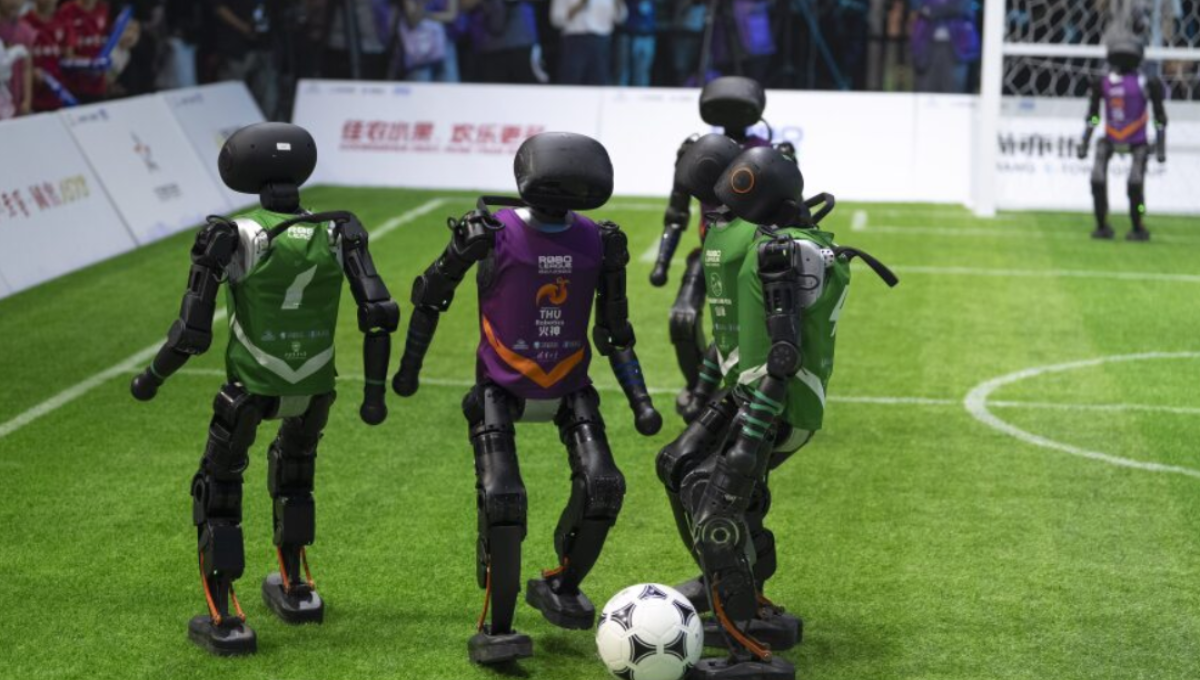While China’s national men’s soccer team has struggled to spark much excitement in recent years, a different kind of team is capturing attention in Beijing — humanoid robots powered by artificial intelligence.
On Saturday night, four teams of fully autonomous humanoid robots competed in 3-on-3 soccer matches in what organizers described as a national first and a preview of the upcoming World Humanoid Robot Games, which will be hosted in Beijing. The robots operated entirely without human control, relying instead on AI algorithms to make decisions, play the game, and react in real time.
Fitted with high-tech visual sensors, the robots were able to detect the ball, move across the field, and recover independently from falls. Still, several robots needed assistance and were carried off the field on stretchers—an element that unexpectedly added to the match’s entertainment value.
This competition is part of China’s broader push to lead in AI-driven humanoid robotics, using real-world sporting events such as marathons, boxing, and football to test and refine technology in practical, dynamic environments.
Cheng Hao, CEO and founder of Booster Robotics—the company that provided the robot hardware—explained that sports create ideal conditions to evaluate both AI algorithms and integrated robotic systems. Each of the four university teams programmed their own AI systems for tasks like object recognition, movement planning, and gameplay strategy, even accounting for ball speed, force, and direction.
Cheng also highlighted safety as a top priority. “In the future, robots might play football alongside humans,” he said. “We have to ensure absolute safety. The goal is to build trust, letting people see that robots can interact with us without harm—even in competitive settings.”
In the championship match, Tsinghua University’s THU Robotics defeated the Mountain Sea team from China Agricultural University with a final score of 5–3. Spectators, including Tsinghua supporters like Mr. Wu, praised both teams for their creativity and skill. “Tsinghua performed excellently,” he said, “but the Mountain Sea team also delivered unexpected highlights.”
While China’s men’s soccer team has only ever qualified for one FIFA World Cup and has already been eliminated from the 2026 tournament, interest in robot soccer seems to be on the rise—driven more by innovation than by traditional sporting success.
Also Read:
Soccer Fan Dies After Falling at Nations League Final Between Spain and Portugal













